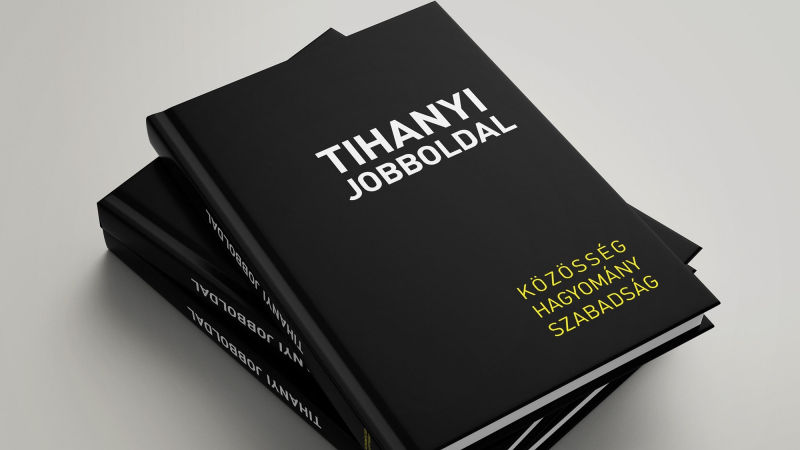What makes today's Hungarian right wing? - A summary entitled "Tihany right side"! The Komnetár magazine started its journey with the slogans of community, tradition and freedom back in 2006, and now three decades have passed since the fall of the communist dictatorship.
At that time, the image of a "country in which there is no longer any need to discuss basic issues" was only "simmering", and today the "outlines of self-governing Hungary" are also visible - these were the words of András Gyürk, Fidesz EP representative, who launched the booklet entitled Tihany's Right . The volume brings together the earlier, defining writings of the authors of the Commentary.
"Our Europe, as it currently is, can still take possession of its heritage. In our seemingly fragmented culture, invisible threads connect the top arches of our cathedrals with the behavior of ordinary people, even if these have thinned out in recent centuries," writes historian Áron Czopf, a contributor to Kommentár. According to the author, the heritage of our culture remains hidden if we, the inheritors, do not reveal ourselves to it. The body politic begins to decay without religion and culture.
Therefore, culture is not to be seen, but to be done.
creating a living link between past and future, on the side of Greco-Roman and Judeo-Christian unity.
Gergely Vágvölgyi, a political scientist and senior staff member of Mandiner, wrote about the protection of creation. According to him, the complex approach to nature and environmental protection in the Zorzavédí region is nothing more than the Christian faith and worldview. Although in the last decades being green meant (new) leftism in a political sense, and the new left, which normally denies Christianity and Christian values, tried to appropriate this area, the idea is not at home there. In fact, it doesn't even originate from there - argues Vágvölgyi. To justify the author's statement, he quotes the relevant verses of the Bible, in which, in addition to the anthropological foundations of the Christian understanding, we also find the basic aspects of the attitude towards the world around man.
Historian Áron Máthé, deputy president of the NEB, wrote about the Trianon century. As he explains, "Trianon stands alone in Hungarian history: our mournful 20th century, the prelude to a hundred years of Hungarian loneliness." Wherever we turn, wherever we reach,
we cannot avoid dealing with it.
András László, an expert in international relations, writes about the issue of protecting Hungarian interests in connection with the war in Ukraine, the inflationary, economic and energy crises. According to the author, this period certainly represents an epochal boundary similar to the end of the Cold War. As László points out, two approaches have defined Hungarian foreign policy since the regime change: following one's own path, and the "good student" model, which adjusts and drifts with the tide. And if by the Hungarian interest we mean the preservation, well-being and development of the Hungarian nation,
then it can only be interpreted within the framework of sovereignty and nation-state existence.
The volume is an indispensable collection of today's Hungarian right-wing thinking, for anyone who wants to understand what Hungarian conservatives think today, either supportively or with a critical eye, would do well to pick it up and give it a thorough review.
Source and full article: Mandiner
Featured Image: Facebook













